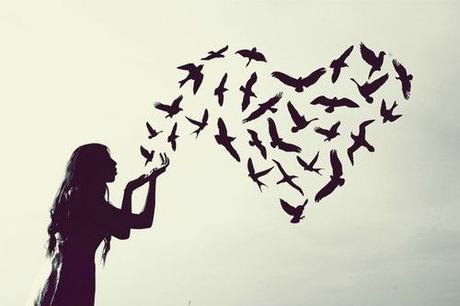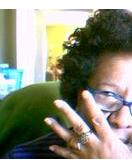
Because we are so caught up with life we often cannot see. That "everything just wanna be loved." * And seen. And forgiven. At the core of most of us is an innocence - mostly hidden, Or lost. Or refused. We are so busy with our day to day life Tending the necessaries Meeting real or imagined goals that There is no time for us. For each other. For the remembrance of love as the most important thing.
Remembering the Present
The Hawaiian prayer of conciliation and reconciliation came into my life about 7 years ago. I attended a workshop blindly stumbling toward answers about life, about me, about what next? I heard the words of "Ho'oponopono" which were:
I love you. I'm sorry. Please forgive me. Thank you.
At that time, I thought it was just another namby-pamby bit of new age mumbo-jumbo. And in those days, although I very much considered myself a new age spiritual person, I felt resentment. Even in this so-called 'enlightened' approach to spirituality, I still never heard anyone acknowledge black saints, mystics, angels, or guides. Even in all the literature I read (and I read a lot), there were only again white faces to mirror back to me. In everyday reality I had already grown up inundated with whiteness as rightness. There was never any way for me to see myself. I struggled in a society that devalued me and people who looked like me, and that most of the time did not, could not, would not see us rightly. We were distortions through a system which maintained the perfection and importance and value of whiteness. While this is not the time or moment to recount all the stories I could tell you about a little black girl growing up in such a system who wanted only to feel seen, you should know that the impact of all that was quite real.
In one scene of the movie adaptation of Alice Walker's brilliant novel, The Color Purple," Sophia rushes up to Celie and confronts her because Celie has advised Sophia's husband to beat Sophia. Sophia after all, was too big, too bold, too mouthy, too out of her place, and her husband, Harpo, felt de-emasculated. So, Sophia confronts Celie with an oft-quoted passage:
"You told Harpo to beat me!"
After a series of words where Celie first denies, then admits that she did, she tells Sophia,
"Dis life be ova soon. Heaven last always."
Packing on the Memories...
In the post-slavery America of that time, Celie turned to what many black people turned to - Christianity, and it's attendant requirement of forgiveness. The thing is that that history and experience taught black folk that there could be no satisfaction in this life. Peace and love would be found in "heaven, an afterlife, another time and place," not now. So, one could only bear life on the earth as best as one could. Forgiveness, as the biblical Jesus, purportedly suggested, was the only way to bear the trials, tribulations, and injustices against black folks. And most black churches upheld the Christian teaching.
I had long ago seen the hypocrisy of those professing to be the holiest of holy in the name of Jesus, and so had rejected Christian traditions for myself, only to find that here, too, in new age spirituality, there were only white archangels, white guides, white wisdom whisperers. Andof course, as I had been taught as a child, the "big Daddy" god of the skies was white... and male. I didn't know why I should hunger for something more. History and my contemporary reality showed the fruits of that (and all other organized religious practices). Still...that which was innocent within me, more self-aware and knowledgeable knew there was more. And I knew of the native and indigenous and African ancient wisdom. We were here. If new age belief systems were to be the more authentic, least-tainted path to our creator, why didn't all these people acknowledge that, too?
So, it was with interest and curiosity, but a bit of reservation, that I attended the Ho'oponopono workshop to learn more of what came from an indigenous Hawaiian culture. But once again, there were only white faces leading and spreading the news about this practice. I listened but I was already feeling that familiar resentment. As I suggested, history and personal experience had taught me and shown me that there was only real value and acknowledgment in whiteness. And once again, here they were taking and spreading the information in a way, as if the ancient knowledge were their own. Yes, I was annoyed. It's likely these people were sincerely interested in sharing something which would help us all to heal, but at that moment, to me, those faces only represented more invisibility to the originators, and to me. I was there, I listened. But I filed this as just another workshop, just another unsatisfying response to my personal spiritual quest. I couldn't see beyond the skin history. Like all the religious and spiritual traditions which encouraged forgiveness in some way, I couldn't get past the representation.
I knew deep within that forgiveness was powerful act, was not just some kissy-kissy 'forgive and forget' thing one did to be a good Christian, or good whatever. There was a rightness strong within me which knew it and I felt it so. There was something that had shown me its power but in my head, I rejected it as something that could help me in my day-to-day life. It wasn't until I met Ho'oponopono again, that I would begin to understand it's real power.
Fast forward 7 years and now my shaman was telling me that I needed to do Ho'oponopono. "It will really help you," she said, "and your son." This time, I listened more intently. I knew I was mentally and emotionally in a different place, and in this moment, something familiar rattled within me, stronger than before and very familiar. She encouraged me to buy Joe Vitale's book, Zero Limits, that would explain more about the process. I did.
Turning a Corner...

Since I had gotten the audiobook, I could hear passages of the book in the voice of Dr. Ihaleakala Hew Len, who was entrusted with the sharing of knowledge about the contemporary form of Ho'oponopono by it's originator, Mornnah Simeona. Dr. Hew Len's voice was soothing and full of confidence in the process. Whereas the traditional form of the practice was done as a group, Mornnah Simeona had refined it so that the individual could do it under any circumstances, and alone.
I was more intrigued. I searched out YouTube videos to hear more of what Dr. Hew Len had to say. He was an elder, a person of color, and spoke with authority about the benefits and practice. I was determined to do whatever was necessary toward the healing of my son. He was struggling and my love need usurped any cynicism about history, color, and my own wobbly self-esteem.
So I chanted the mantra. Whenever I was doing something (cooking, reading, watching the TV, facebooking, I chanted silently and aloud). I didn't really understand the why and how of it but a desperation caused me to try again. It began working.
From the Inside Out
Ho'oponopono - "I love you, I'm sorry, please forgive me, thank you" was a prayer of conciliation and reconciliation to myself and to that highest wisdom within me. I didn't know why it was working, but it was. It didn't matter that I might or might not believe it when I said it. I often rambled it off absent-mindedly, but still, it was working. I began to see change in my son, and I began to see change in myself.
It matters not the why, but the results I am having in my life keep me chanting those words. I feel more peace, I feel more love, I feel forgiven in my deepest places where the need is greatest. I need not believe anything. I simply need to do it. I know it is healing things in my unconscious awareness, things long ago tucked away because it heals memories. And memories are the thing we are constantly reacting to in our daily lives. Moment by moment, step-by-step, day-by-day, I am being healed. And my healing impacts upon those in my sphere and life. This mantra, this prayer is reconciling me to my greatest wisdom, to my deepest love.
I am beyond grateful.
*Quote from Alice Walker, The Color Purple

